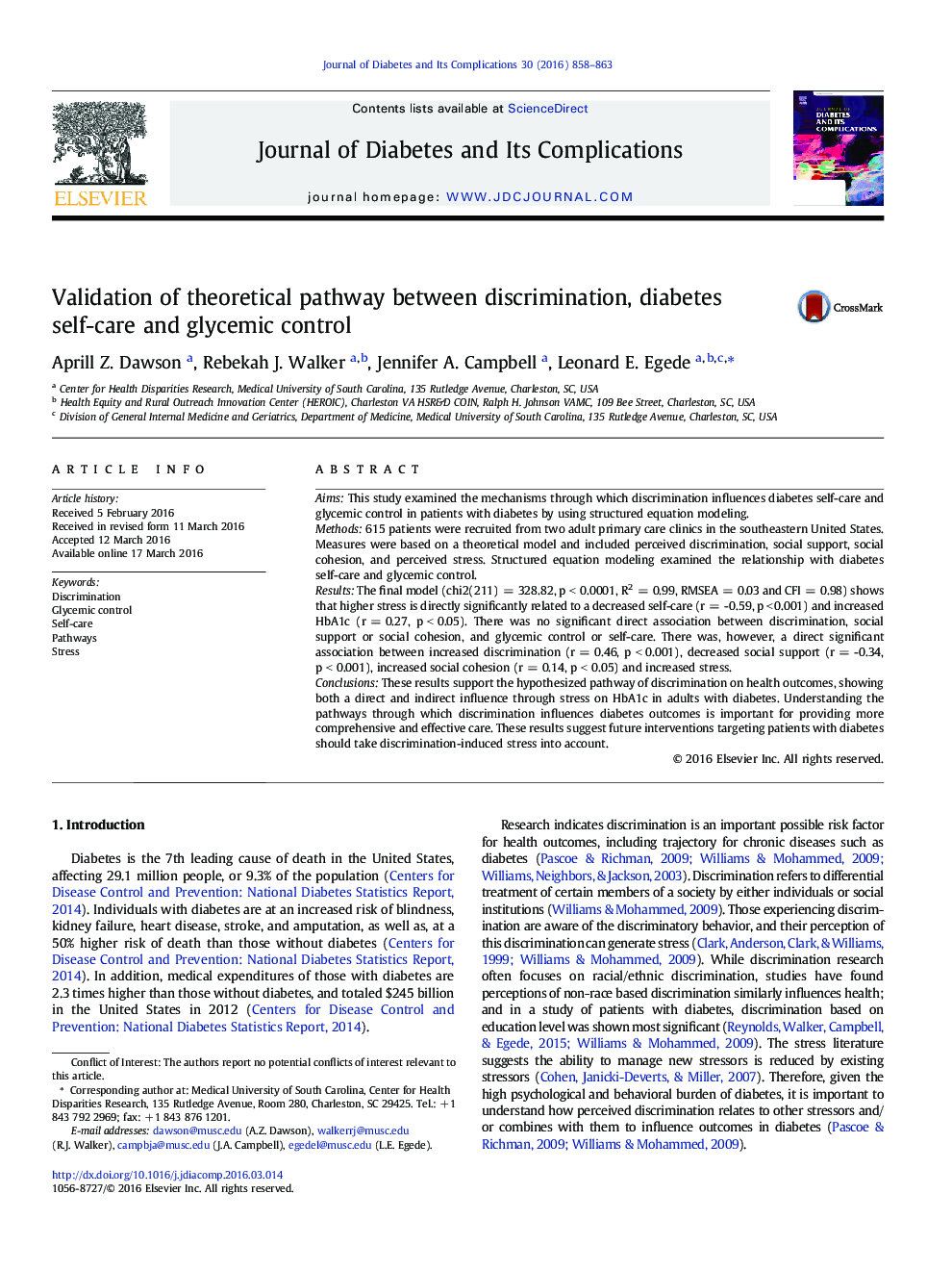| Article ID | Journal | Published Year | Pages | File Type |
|---|---|---|---|---|
| 2804089 | Journal of Diabetes and its Complications | 2016 | 6 Pages |
AimsThis study examined the mechanisms through which discrimination influences diabetes self-care and glycemic control in patients with diabetes by using structured equation modeling.Methods615 patients were recruited from two adult primary care clinics in the southeastern United States. Measures were based on a theoretical model and included perceived discrimination, social support, social cohesion, and perceived stress. Structured equation modeling examined the relationship with diabetes self-care and glycemic control.ResultsThe final model (chi2(211) = 328.82, p < 0.0001, R2 = 0.99, RMSEA = 0.03 and CFI = 0.98) shows that higher stress is directly significantly related to a decreased self-care (r = -0.59, p < 0.001) and increased HbA1c (r = 0.27, p < 0.05). There was no significant direct association between discrimination, social support or social cohesion, and glycemic control or self-care. There was, however, a direct significant association between increased discrimination (r = 0.46, p < 0.001), decreased social support (r = -0.34, p < 0.001), increased social cohesion (r = 0.14, p < 0.05) and increased stress.ConclusionsThese results support the hypothesized pathway of discrimination on health outcomes, showing both a direct and indirect influence through stress on HbA1c in adults with diabetes. Understanding the pathways through which discrimination influences diabetes outcomes is important for providing more comprehensive and effective care. These results suggest future interventions targeting patients with diabetes should take discrimination-induced stress into account.
